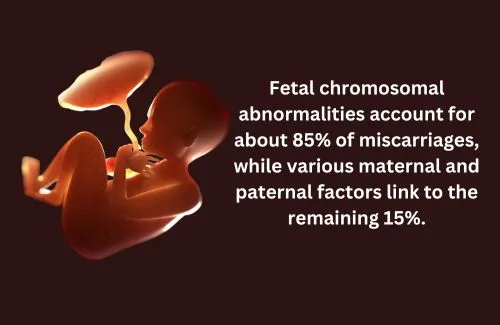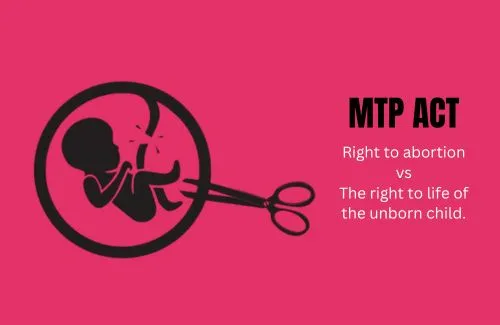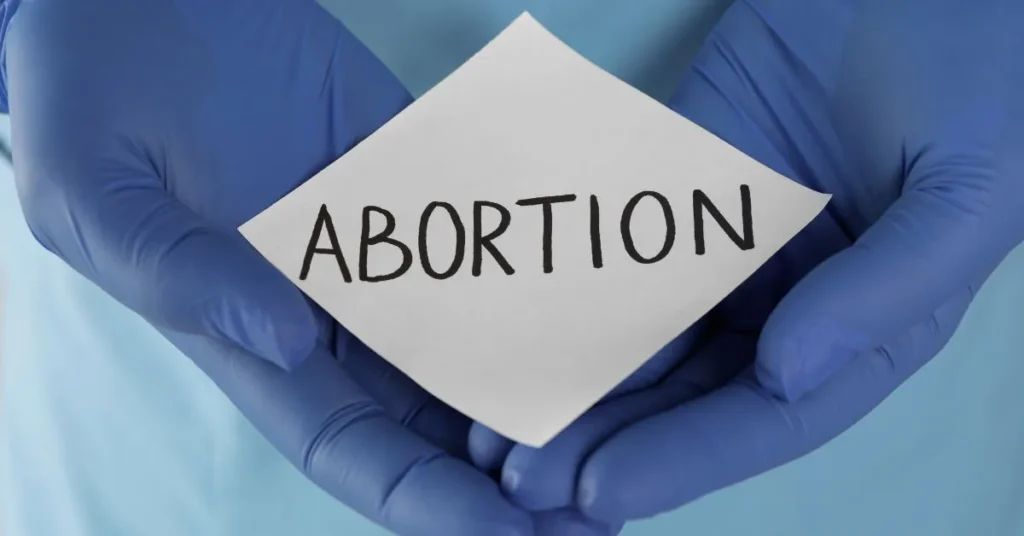Abortion, a complex and sensitive topic, is the termination of a pregnancy, either naturally or through medical intervention. Abortion is a normal medical procedure.
If we see a mango tree, it produces numerous buds. However, not every bud matures into a fully-grown mango. Some buds may not receive the necessary nutrients or sunlight, while others may face unfavorable weather conditions or pest infestations. As a result, only a fraction of the buds actually reach their full potential and grow into ripe, delicious mangoes.
Not every conception results in a successful birth due to various factors, like genetic abnormalities and maternal health concerns. This may lead to difficult decisions regarding abortion, requiring careful consideration of physical, emotional well-being, quality of life, and societal and economic circumstances.
The process of conception involves the fusion of a sperm and an egg to form a zygote. If this process is disrupted or if there are errors in the formation of the 46 XX or XY chromosomes, it can result in an imperfect zygote. If with every conception, a baby is born, it can increase the chances of chromosomal anomalies. It can have significant implications for fetal development and can lead to congenital abnormalities in babies.
Also Read: Kareena Kapoor and all about her third child
Studies have shown that out of 100 pregnancies that end in abortion, about 85 cases involved zygotes that were not viable enough to develop into a healthy baby. Allowing such pregnancies to progress could result in babies being born with congenital abnormalities, causing pain and challenges throughout their entire lives.
Just as in nature’s principle of survival of the fittest, not every conception can result in a viable pregnancy or healthy birth. Acknowledging this reality calls for empathy, compassion, and respect for individual autonomy when discussing the topic of abortion.
Incidences of Abortion:
Spontaneous abortions, or miscarriages, occur in approximately 1 in 8 pregnancies. It’s important to distinguish them from induced termination of pregnancy (TOP).

Maternal factors may include underlying diseases or problems with the uterussuch as its small size or the presence of abnormal uterine lining, while paternal factors may involve sperm issues. In some cases, complications with the mother’s organs can also contribute to miscarriages.
How to prevent the possibilities that can lead to abortion?
Preventing Pelvic Inflammatory Diseases (PID) and Sexually Transmitted Diseases (STDs) is crucial. Safe sex practices with one partner and using condoms can significantly reduce the risk of infections. Good personal hygiene is essential to minimize infection-related complications during pregnancy. Seeking prompt medical attention and following prescribed antibiotics can safeguard reproductive health, including fallopian tubes, thus reducing the risk of ectopic pregnancies. However, once the embryo develops naturally in the uterus, prevention is not possible. The focus then shifts to prenatal care and ensuring a healthy pregnancy.
Types of Abortion:
Abortion has two main categories: spontaneous and induced.
- Spontaneous abortion, also known as a miscarriage, occurs naturally without deliberate intervention due to fetal abnormalities or maternal health issues.
- Induced abortion, on the other hand, involves a conscious decision by the mother to terminate the pregnancy for various reasons. Medical methods for induced abortion include
- Medical Termination of Pregnancy (MTP) within 6 weeks using specific medications and safe abortion up to 24 weeks (previously limited to 20 weeks) under medical supervision in accordance with the MTP Act.

Medical Termination of Pregnancy ACT:
The Medical Termination of Pregnancy (MTP) Act of 1971 is a significant step by India to address unsafe abortions and maternal mortality. Lack of awareness about contraception established the scenario where young girls face early pregnancies and seek unsafe abortion methods. Legalizing the Act aimed to provide a safe and regulated framework for women’s reproductive health decisions, granting autonomy to adult women above 18 without requiring permission from their husband or anyone else. The Act also empowers unmarried women to freely exercise their reproductive rights.
Criteria for MTP:
The Medical Termination of Pregnancy (MTP) Act, 1971 in India lays down several criteria and conditions for seeking and performing abortions –
- Gestational age: The Act differentiates between two categories of pregnancies based on gestational age:
- Up to 12 weeks: Abortion can be performed on the request of the woman alone, without the need for any special reasons.
- Between 12 and 20 weeks: Abortion requires the opinion of at least one registered medical practitioner.
- Opinion of two doctors: For pregnancies between 12 and 20 weeks (now 24 weeks), the Act mandates that the abortion can proceed only with the opinion of at least two registered medical practitioners.
- Abortion can be performed at any gestational age if it is immediately necessary to save the pregnant woman’s life or to prevent grave injury to her physical or mental health.
- If contraception fails or the woman’s contraceptive method fails, permission for the abortion if granted.
- Abortion is allowed if there is substantial risk that the child, if born, would suffer from physical or mental abnormalities, leading to a serious handicap.
- Married or unmarried women: The Act makes it clear that the marital status of the woman is irrelevant for seeking abortion services.
- Consent: For adult women (above 18 years of age), their consent is sufficient to undergo an abortion. No permission from the husband or any other person is required.
- Accompanying person: An adult woman seeking abortion must be accompanied by another adult during the procedure. The woman can choose who shall accompany her.




2 Responses